Get free access to the lecture on “Neuropsychology of intellectual disability: Benefits of cognitive stimulation and intervention strategies” delivered by the Doctors in Psychology Olga Bruna and Roser Fernández! The training took place at the Intellectual Disability Conference: Advances and Future Challenges organized by NeuronUP on October 4.
You can watch the recorded lecture after registering at the following link:
Questions about the lecture on neuropsychology of intellectual disability
Below, the Doctors Olga Bruna and Roser Fernández answer the questions that there wasn’t time to address during the live presentation of their lecture on Neuropsychology of intellectual disability.
1. Psychologist Meritxell Tomás asks about residential resources for people with intellectual disability
Question:
Thank you very much Olga and Roser — it was fantastic! I have a question: are there any residential facilities for people with ID + DS and DTA with severe behavioral disturbances? Organic causes have been ruled out. We find that in residential facilities the residents are aging, and there are no places specialized for older adults (and even fewer for those with behavioral issues). Thanks!
Answer:
Thank you very much, we are glad that you were interested in the presentation. The truth is that it is still a difficult topic, although, at least in Barcelona, some day centers and residential homes are beginning to open places for people with intellectual disability. Those that have been operating for years are private foundations that have their occupational center and also a residence.
2. Psychologist Nuria Mallol raises her question about whether a person with Down syndrome can reverse their cognitive decline
Question:
Is it possible for a person with Down syndrome and mild cognitive impairment to revert to their previous cognitive state through cognitive stimulation exercises?
Answer:
Cognitive stimulation helps to maintain functions and even improve in some aspects, but reversing once a cognitive decline has already been diagnosed for neurobiological reasons is not easy. Various pharmacological treatments are being tested, but it is still too early to draw clear conclusions.
As with dementias in the general population, the important thing is to continue with cognitive stimulation even after cognitive decline has been detected and to do so in a way adapted to each person’s needs. The aim is to slow, as much as possible, the progression of cognitive decline and promote autonomy and functionality in activities of daily living.
It is also essential to attend to family members, with the aim of guiding them in activities of daily living and taking into account the psychological burden they may experience.
3. Neuropsychologist Carolina González wonders whether it is possible to carry out neuropsychological intervention programs in children or adolescents
Question:
Can these neuropsychological intervention programs be started in younger people, for example in children and adolescents with Down syndrome?
Answer:
The sooner intervention with specific programs according to each person’s needs is implemented, the better. Early stimulation programs are already very beneficial in the earliest ages, and it is important to design care tailored to the needs of each person and family during childhood and adolescence. Just as in adulthood it is very positive to continue training and working on cognitive processes, as well as to promote autonomy and self-regulation.
4. Psychology student Cristian Fco Liebanans presents his questions about the possibility of preventing neuroaging in pediatric patients
Question:
Can neuroaging be prevented in pediatric patients? For example, as is done with acquired brain injury where cannabidiol is used. I am a Psychology student. I love these types of conferences for my career and development.
Answer:
Regarding more specific pharmacological treatments, we are sorry we cannot answer your question, since we are not specialists in that field. What is fundamental is to begin early stimulation adapted to their needs as soon as possible, with the aim of promoting the neurodevelopment process.
5. Professor Lucero del Carmen Escobedo asks whether the instruments mentioned would be useful for young children
Question:
For children aged 3 to 5 years, would the instruments mentioned be useful?
Answer:
The instruments that are commonly used are tests and/or subtests of known assessments that help to develop a neuropsychological protocol/battery that allows obtaining a profile. This neuropsychological profile informs about the person’s strengths and weaknesses in order to develop a specific intervention based on learning potential. We recommend reading the following article:
https://revistadown.downcantabria.com/wp-content/uploads/2008/06/revista97_56-67.pdf
6. Neuropsychologist Aida Miranda wants to know whether the presenters have found any relevant findings in the phases of neurodevelopment of people with Down syndrome
Question:
Good afternoon! I would like to know if you have found any relevant findings in the neurodevelopmental phases of people with Down syndrome, since you mentioned that the aging process begins earlier (around 38 years, I believe you mentioned).
Answer:
Initially, it is proposed that between ages 38 and 40, and more especially from 40 years onward cognitive, emotional, and behavioral changes can manifest in people with Down syndrome and therefore it is essential to carry out monitoring to detect a decline that may indicate the onset of a possible neurodegenerative process.
If we detect cognitive, emotional, and behavioral changes relative to each person’s previous situation, it is fundamental to perform a more specific diagnosis. This would be carried out through the administration of tests adapted for the population of people with intellectual disability, such as the CAMDEX-DS. Therefore, it is crucial to promote cognitive stimulation even before that age, to foster cognitive reserve with the aim of slowing the deterioration process during aging.
We recommend reading this article: https://revistadown.downcantabria.com/wp-content/uploads/2008/06/revista97_56-67.pdf
7. Speech therapist Cristina Urgoiti asks whether people with intellectual disability and behavioral problems should first be referred to a center
Question:
Assessment is a very difficult aspect because on many occasions there are behavioral problems and they are not cooperative, and in a day center it is very, very complicated. Should they be referred to some center to treat the behavioral problem first? Or how can we proceed?
Answer:
In these cases it is best that the assessment be carried out through systematic observations in their most familiar and close environment in order to provide guidance and intervene tailored to their needs.
Furthermore, it is also important to bear in mind that emotional and behavioral problems usually generate the greatest psychological burden on family members, so we should work jointly with the family.
8. Psychologist Richar Rojas questions the instruments related to maladaptive behaviors and social skills
Question:
Regarding maladaptive behaviors and social skills, which instruments can be used for standardized assessment in Down syndrome and to work according to their needs? Thanks.
Answer:
We recommend reading this article from 2019 published in the Revista Síndrome de Down: Vida Adulta in which a systematic review is conducted regarding how to assess cognitive and adaptive capacities in people with DS:
9. The speech therapist Cristina Urgoiti raises her questions about the assessment of people without language
Question:
In people who do not have language, how do you assess?
Answer:
Evaluation screenings are prepared so that the different tests do not compromise people who have not acquired a sufficient level of expressive language. For this, those tests are chosen that offer the possibility of multiple-choice response, for example through pointing (e.g., Peabody Picture Vocabulary Test).
If you liked this post about neuropsychology of intellectual disability, you will probably be interested in the following articles:
“This article has been translated. Link to the original article in Spanish:”
Ponencia sobre neuropsicología de la discapacidad intelectual
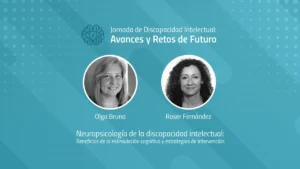
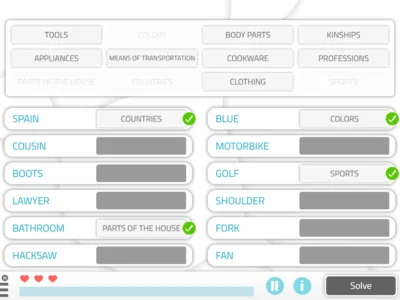
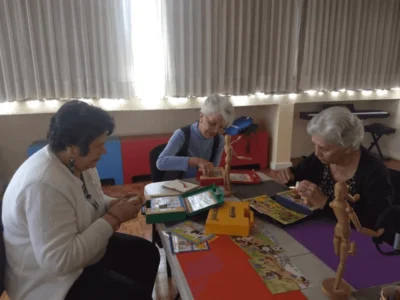
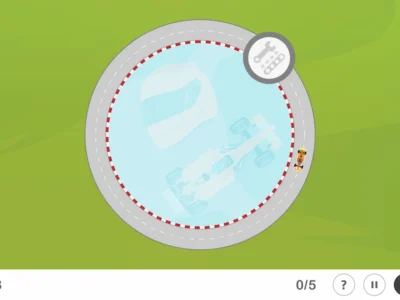
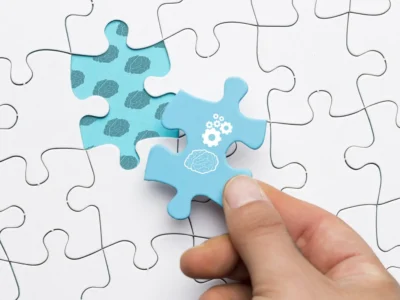


 Guide for teachers: how to address ADHD in the classroom
Guide for teachers: how to address ADHD in the classroom
Leave a Reply